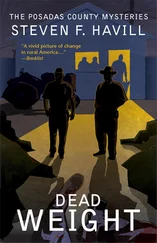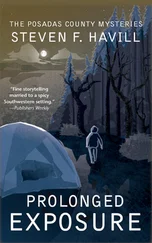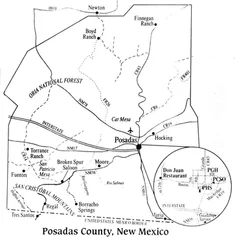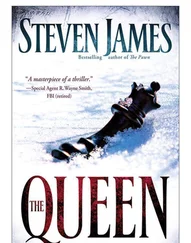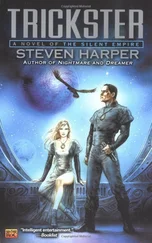Steven Dubner - Freakonomics
Здесь есть возможность читать онлайн «Steven Dubner - Freakonomics» весь текст электронной книги совершенно бесплатно (целиком полную версию без сокращений). В некоторых случаях можно слушать аудио, скачать через торрент в формате fb2 и присутствует краткое содержание. Жанр: Старинная литература, на русском языке. Описание произведения, (предисловие) а так же отзывы посетителей доступны на портале библиотеки ЛибКат.
- Название:Freakonomics
- Автор:
- Жанр:
- Год:неизвестен
- ISBN:нет данных
- Рейтинг книги:3 / 5. Голосов: 1
-
Избранное:Добавить в избранное
- Отзывы:
-
Ваша оценка:
- 60
- 1
- 2
- 3
- 4
- 5
Freakonomics: краткое содержание, описание и аннотация
Предлагаем к чтению аннотацию, описание, краткое содержание или предисловие (зависит от того, что написал сам автор книги «Freakonomics»). Если вы не нашли необходимую информацию о книге — напишите в комментариях, мы постараемся отыскать её.
Freakonomics — читать онлайн бесплатно полную книгу (весь текст) целиком
Ниже представлен текст книги, разбитый по страницам. Система сохранения места последней прочитанной страницы, позволяет с удобством читать онлайн бесплатно книгу «Freakonomics», без необходимости каждый раз заново искать на чём Вы остановились. Поставьте закладку, и сможете в любой момент перейти на страницу, на которой закончили чтение.
Интервал:
Закладка:

FREAKONOMICS
A Rogue Economist Explores the Hidden Side of
Everything
Steven D. Levitt and Stephen J. Dubner
CONTENTS
AN EXPLANATORY NOTE
In which the origins of this book are clarified.
INTRODUCTION: The Hidden Side of Everything
In which the book’s central idea is set forth: namely, if morality represents how people would like the world to work, then economics shows how it actually does work.
Why the conventional wisdom is so often wrong…How “experts”—from criminologists to real-estate agents to political scientists—bend the facts…Why knowing what to measure, and how to measure it, is the key to understanding modern life…What is “freakonomics,” anyway?
1. What Do Schoolteachers and Sumo Wrestlers Have in Common?
In which we explore the beauty of incentives, as well as their dark side—
cheating.
Who cheats? Just about everyone…How cheaters cheat, and how to catch them…Stories from an Israeli day-care center…The sudden disappearance of seven million American children…Cheating schoolteachers in Chicago…Why cheating to lose is worse than cheating to win…Could sumo wrestling, the national sport of Japan, be corrupt?…What the Bagel Man saw: mankind may be more honest than we think.
2. How Is the Ku Klux Klan Like a Group of Real-Estate Agents?
In which it is argued that nothing is more powerful than information, especially when its power is abused.
Going undercover in the Ku Klux Klan…Why experts of every kind are in the perfect position to exploit you…The antidote to information abuse: the Internet…Why a new car is suddenly worth so much less the moment it leaves the lot…Breaking the real-estate agent code: what “well maintained” really means…Is Trent Lott more racist than the average Weakest Link contestant?…What do online daters lie about?
3. Why Do Drug Dealers Still Live with Their Moms?
In which the conventional wisdom is often found to be a web of fabrication, self-interest, and convenience.
Why experts routinely make up statistics; the invention of chronic halitosis…How to ask a good question…Sudhir Venkatesh’s long, strange trip into the crack den…Life is a tournament…Why prostitutes earn more than architects…What a drug dealer, a high-school quarterback, and an editorial assistant have in common…How the invention of crack cocaine mirrored the invention of nylon stockings…Was crack the worst thing to hit black Americans since Jim Crow?
4. Where Have All the Criminals Gone?
In which the facts of crime are sorted out from the fictions.
What Nicolae Ceau?escu learned—the hard way—about abortion…Why the 1960s were a great time to be a criminal…Think the roaring 1990s economy put a crimp on crime? Think again…Why capital punishment doesn’t deter criminals…Do police actually lower crime rates?…Prisons, prisons everywhere…Seeing through the New York City police “miracle”…What is a gun, really?…Why early crack dealers were like Microsoft millionaires and later crack dealers were like Pets.com…The superpredator versus the senior citizen…Jane Roe, crime stopper: how the legalization of abortion changed everything.
5. What Makes a Perfect Parent?
In which we ask, from a variety of angles, a pressing question: do parents really matter?
The conversion of parenting from an art to a science…Why parenting experts like to scare parents to death…Which is more dangerous: a gun or a swimming pool?…The economics of fear…Obsessive parents and the nature-nurture quagmire…Why a good school isn’t as good as you might think…The black-white test gap and “acting white”…Eight things that make a child do better in school and eight that don’t.
6. Perfect Parenting, Part II; or: Would a Roshanda by Any Other Name Smell as Sweet?
In which we weigh the importance of a parent’s first official act—naming the baby.
A boy named Winner and his brother, Loser…The blackest names and the whitest names…The segregation of culture: why Seinfeld never made the top fifty among black viewers…If you have a really bad name, should you just change it?…High-end names and low-end names (and how one becomes the other)…Britney Spears: a symptom, not a cause…Is Aviva the next Madison?…What your parents were telling the world when they gave you your name.
EPILOGUE: Two Paths to Harvard
In which the dependability of data meets the randomness of life.
AN EXPLANATORY NOTE
The most brilliant young economist in America—the one so deemed, at least, by a jury of his elders—brakes to a stop at a traffic light on Chicago’s south side. It is a sunny day in mid-June. He drives an aging green Chevy Cavalier with a dusty dashboard and a window that doesn’t quite shut, producing a dull roar at highway speeds.
But the car is quiet for now, as are the noontime streets: gas stations, boundless concrete, brick buildings with plywood windows.
An elderly homeless man approaches. It says he is homeless right on his sign, which also asks for money. He wears a torn jacket, too heavy for the warm day, and a grimy red baseball cap.
The economist doesn’t lock his doors or inch the car forward. Nor does he go scrounging for spare change. He just watches, as if through one-way glass. After a while, the homeless man moves along.
“He had nice headphones,” says the economist, still watching in the rearview mirror. “Well, nicer than the ones I have. Otherwise, it doesn’t look like he has many assets.”
Steven Levitt tends to see things differently than the average person. Differently, too, than the average economist. This is either a wonderful trait or a troubling one, depending on how you feel about economists.
—The New York Times Magazine, August 3, 2003
In the summer of 2003, The New York Times Magazine sent Stephen J. Dubner, an author and journalist, to write a profile of Steven D. Levitt, a heralded young economist at the University of Chicago.
Dubner, who was researching a book about the psychology of money, had lately been interviewing many economists and found that they often spoke English as if it were a fourth or fifth language. Levitt, who had just won the John Bates Clark Medal (awarded every two years to the best American economist under forty), had lately been interviewed by many journalists and found that their thinking wasn’t very…robust, as an economist might say.
But Levitt decided that Dubner wasn’t a complete idiot. And Dubner found that Levitt wasn’t a human slide rule. The writer was dazzled by the inventiveness of the economist’s work and his knack for explaining it. Despite Levitt’s elite credentials (Harvard undergrad, a PhD from MIT, a stack of awards), he approached economics in a notably unorthodox way. He seemed to look at things not so much as an academic but as a very smart and curious explorer—a documentary filmmaker, perhaps, or a forensic investigator or a bookie whose markets ranged from sports to crime to pop culture. He professed little interest in the sort of monetary issues that come to mind when most people think about economics; he practically blustered with self-effacement. “I just don’t know very much about the field of economics,” he told Dubner at one point, swiping the hair from his eyes. “I’m not good at math, I don’t know a lot of econometrics, and I also don’t know how to do theory. If you ask me about whether the stock market’s going to go up or down, if you ask me whether the economy’s going to grow or shrink, if you ask me whether deflation’s good or bad, if you ask me about taxes—I mean, it would be total fakery if I said I knew anything about any of those things.”
Читать дальшеИнтервал:
Закладка:
Похожие книги на «Freakonomics»
Представляем Вашему вниманию похожие книги на «Freakonomics» списком для выбора. Мы отобрали схожую по названию и смыслу литературу в надежде предоставить читателям больше вариантов отыскать новые, интересные, ещё непрочитанные произведения.
Обсуждение, отзывы о книге «Freakonomics» и просто собственные мнения читателей. Оставьте ваши комментарии, напишите, что Вы думаете о произведении, его смысле или главных героях. Укажите что конкретно понравилось, а что нет, и почему Вы так считаете.






